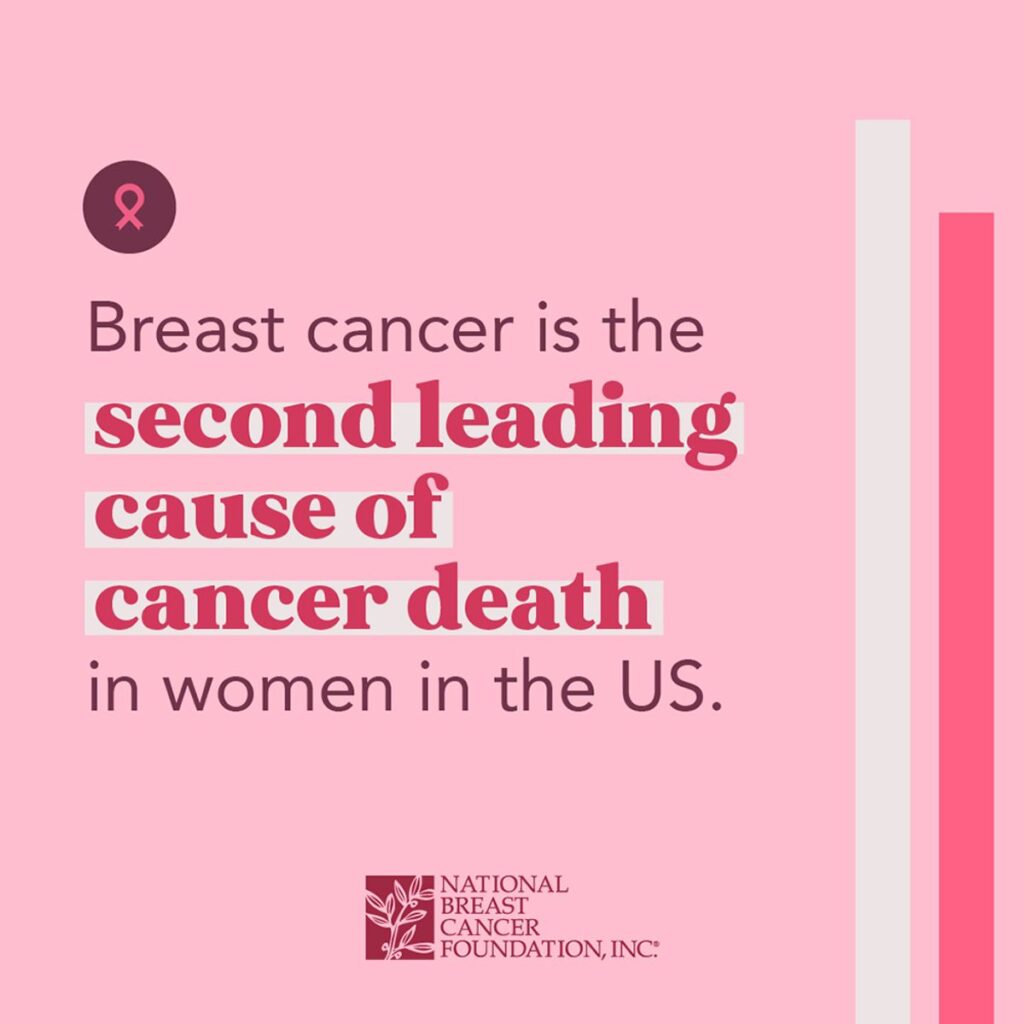(Editor’s Note: The following information was provided by the National Breast Cancer Foundation.)
Environmental and life-style risk factors that can be changed may include:
•Lack of Physical Activity: A sedentary life-style with little physical activity can increase your risk for breast cancer. Moving your body or exercising for even 20 minutes a day can help lower this risk factor.
•Poor Diet: A diet high in saturated fat and lacking fruits and vegetables can increase your risk for breast cancer. Eating 3.5 to 5 cups of fruits and vegetables a day can help lower this risk factor.
•Being Overweight or Obese: Being overweight or obese can increase your risk for breast cancer. This risk increases if you have already gone through menopause.
•Drinking Alcohol: Frequent consumption of alcohol can increase your risk for breast cancer. The more alcohol you consume, the greater the risk.
•Radiation to the Chest: Having radiation therapy to the chest before the age of 30 can increase your risk for breast cancer. While radiation is often an unavoidable therapy for certain illnesses, it is still considered an environmental or lifestyle risk factor because it is not an inherited trait that someone is born with.
•Combined Hormone Replacement Therapy (HRT): Taking combined hormone replacement therapy, as prescribed for menopause, can increase your risk for breast cancer and increases the risk that the cancer will be detected at a more advanced stage. Speak with your doctor about the benefits and risks of HRT.

